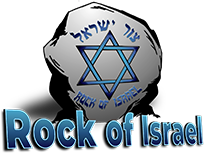If you are reading this article, it means that you are wanting to be informed about the Jewish roots of the faith. We are glad you are here. So it goes without saying that the language we use in America today, English, was unknown to the first century Bible writers. As a matter of fact, the names of the Jewish Talmidim (disciples), the places in the Bible, and even of the Messiah Himself were all in Hebrew (or Aramaic – a sister dialect).
Actually, if some of them knew their names in English today, they would be very surprised that their English names have virtually no meaning like their Hebrew names did.
So what were these names?

Let’s start at the top. Jesus is the name we use for the Messiah in English (and we have no problem with that), but did you know that if you had been there, in the first century, you would have heard people call him Yeshua (ישוע), which was a shorter form of the name “Yehoshua” or Joshua. And that name, Yeshua, has a meaning. It means “to rescue” or “to deliver.”
Think of how it was not Moses and the Law that brought the nation of Israel into the promised land, but ultimately it was Joshua (Yehoshua/Yeshua) who brought them into the promised land (Joshua 3:1). Similarly, it is not by obeying the Law of Moses (for the law is perfect and we are not) that one gets into the Kingdom of Heaven, but it is by God’s grace through following, obeying, and trusting in Yeshua / Jesus, our modern day Joshua.
But the Hebrew names in the New Covenant Scriptures do not end there. The Jewish disciples had Hebrew names as well. For instance:
Peter: Peter’s original name, according to the Greek text, is Simon son of Jonah (John 21:15). However, being a Jew, his Hebrew name would have been שמעון בן יונה (Shimon ben Jonah – Shimon son of Jonah). The same name as the second son of Jacob from the book of Genesis. The name שמעון (Shimon, Strong’s #559) means “heard.”
John: John’s name was יוחנן (Yohhanan) in Hebrew, and it means “God is gracious.”
James: Ok, hold onto your hat for this one. If you look at the actual Greek text, the name “James” is not there. The name written in the New Testament is יעקב (Ya’akov) and in Hebrew, that is the name “Jacob.” When was the last time you heard someone say, “Open your Bibles to the Epistle of Jacob”? If they meant the book of James, that is really what they should have been saying, for that is what the author calls himself. “James (Jacob is what is written), a servant of God….” (James 1:1)
Matthew: If you look in Mark 2:14, you will see Yeshua / Jesus calling Matthew, the tax collector. And what was Matthew’s Hebrew name? It was Levi, one of the tribes of Israel.
And don’t forget Yeshua’s earthly mother: Mary is greatly respected for being a young, humble Jewish servant of God who got to carry the physical body of the Messiah for nine months. But her name was not actually Mary. It was Miriam (or Myriam, alternate spelling), probably pronounced in Aramaic as “Maryam”. This was the exact same name as Moses’ sister in the book of Exodus.

So do you see how translating the names of the early followers of Yeshua into English takes away from the Jewish roots of the gospel message? And when you take away the roots, it makes it much, much easier for the Jewish people to dismiss the message of the gospel as “a faith for the Gentiles, not for us”.
If the gentile ‘church,’ for centuries, had spoken of YESHUA and His disciples such as: LEVI (Matthew), SIMON / SIMEON (Peter), JACOB (James), and his mother MIRIAM (Mary), what a powerful connection people would make between the Messiah and His Jewish roots. But today, the Jewish people hear from their rabbis about how Jesus and His followers are “not for us.” Nothing could be further from the truth. It is a Jewish message with Jewish names.
So are we saying you need to stop using the English names of all these people in the Bible? Absolutely not. But simply this – when speaking to a Jewish person (or unaware Christian), simply remind them that the Bible has Jewish roots.






